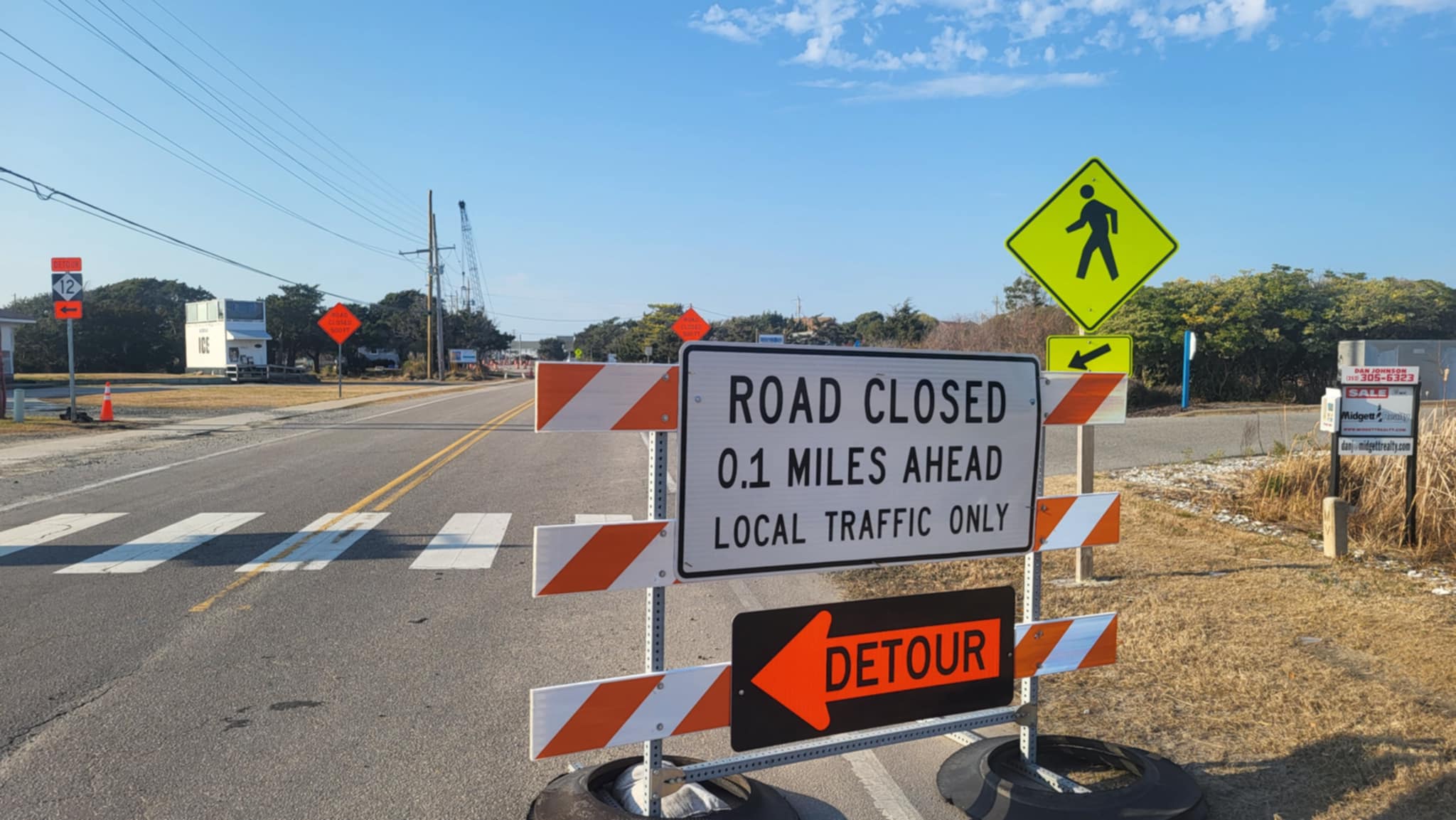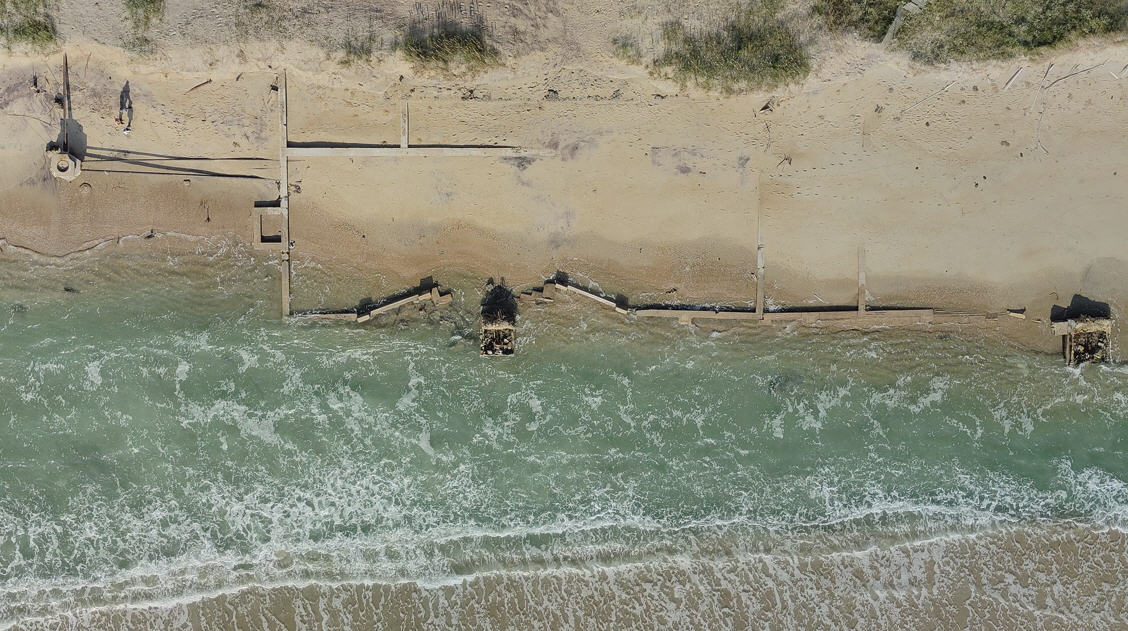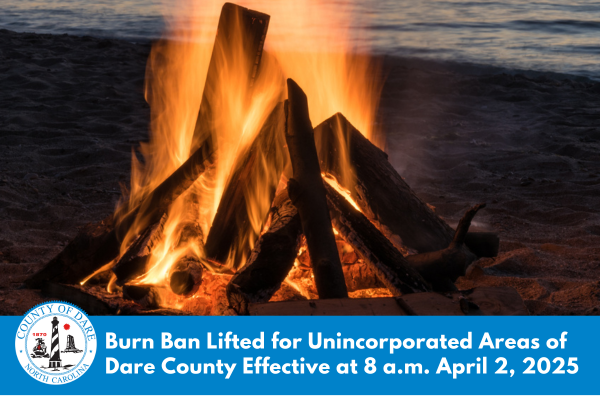UPDATE: Gypsy moth spraying set to start April 24 or 25
The N.C. Department of Agriculture and Consumer Services will is scheduled to begin aerial treatments for a gypsy moth infestation over in the Buxton Woods area on Sunday afternoon, April 24, or Monday morning, April 25, weather permitting.
Chris Elder, NCDA&CS Gypsy Moth Program manager, says the aerial treatments will be performed by a blue-and-white helicopter flying low over the treetops of 1,478 acres in Buxton and Frisco. The application typically takes place early or late in the day, he said. A small airplane will be flying overhead to keep an eye on the operation, but will not be spraying.
“The product we are using is called Gypchek, which is a virus that is specific only to gypsy moths,” Elder said. “It does not harm plants, people, or any other animals besides gypsy moth caterpillars.”
He said there will also be a small ATV treating with a mist blower in the vicinity of Highway 12 and Old Doctors Road. The ATV will be treating with a product called Btk, which affects only small caterpillars and is harmless to people, other animals, and plants.
The treatments will be repeated in seven to 10 days.
“Our field monitoring activities last year determined that a reproducing population of the highly destructive gypsy moth exists on the island,” Elder said. “Our planned treatment activities are designed to protect trees and shrubs in the vicinity of Buxton Woods and to preserve the unique island ecosystem.”
Gypsy moths feed on the leaves of more than 300 different species of trees and shrubs, predominantly oaks and hardwoods. When areas become heavily infested, trees may be completely stripped of foliage, leaving yard trees and entire forests more susceptible to attacks from other pests. Severe infestations often lead to tree death.
Gypsy moth caterpillars can also pose public health concerns for people with respiratory problems. In areas with high-density gypsy moth populations, the caterpillar hairs and droppings may cause severe allergic reactions.
NCDA&CS has addressed spot introductions of the gypsy moth across North Carolina since the 1970s. The treatment will be done in cooperation with the U.S. Department of Agriculture’s Forest Service, Elder said.
Public hearings were held in September and November in Buxton to discuss this infestation and receive input from all stakeholders about treatment options.
For more information, including maps and a description of the proposed treatment area, go to www.ncagr.com/gypsymoth or contact NCDA&CS toll free at 800-206-9333. More immediate updates, including spray start dates, will be posted on Twitter at www.twitter.com/NCAgriculture.













